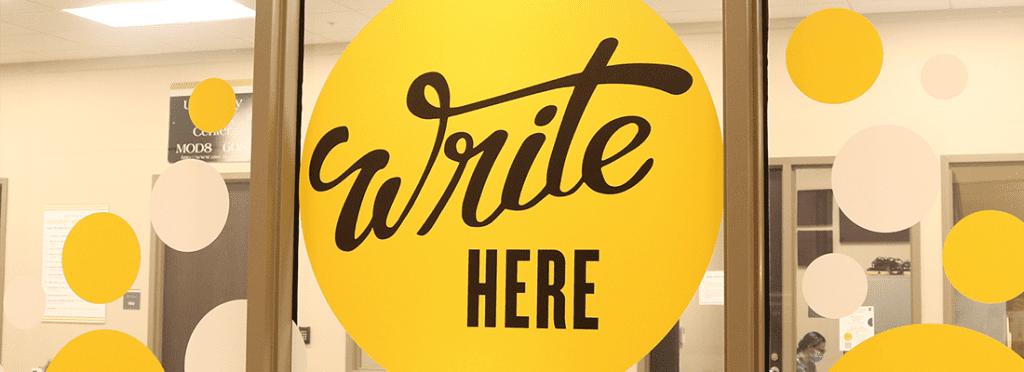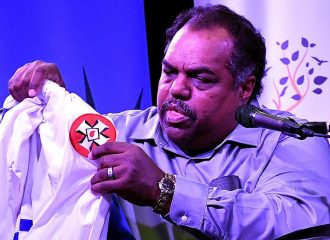By Jacob Goldberg-Murphy
If you were to peek into the history of any writing that I have completed in the last few years, you would see hours’ worth of discarded revisions and unused drafts that never made it past the introduction phase. I find sharing works I create vulnerable, even innocuous things like peer reviews in a discussion post, always agonizing over choosing the right words that align with the thoughts in my head. But, despite any chronic overthinking I may do, I still love to write. My experience as a tutor at the University Writing Center has allowed me to spend my days collaborating with writers from all over the world.
 This summer semester, I spoke with a student from Colombia about her experience coming to America. We were working together on a literature review when I noticed that her word processor was in Spanish, something that I had not seen in any session up until that point. I asked about what it was like writing in a multilingual environment, and she told me she prefers it because it keeps her sharp with both languages. Maintaining the ability to speak and read in Spanish was important to her, especially when it came time to visit her family in Colombia, and small things like keeping language settings set to Spanish helped accomplish that. Learning more about her experiences with both cultures, let us connect more in our session and resulted in a more fun and productive conversation. Being a peer tutor has enabled me to have conversations with writers and to learn from perspectives and experiences which often differ from my own.
This summer semester, I spoke with a student from Colombia about her experience coming to America. We were working together on a literature review when I noticed that her word processor was in Spanish, something that I had not seen in any session up until that point. I asked about what it was like writing in a multilingual environment, and she told me she prefers it because it keeps her sharp with both languages. Maintaining the ability to speak and read in Spanish was important to her, especially when it came time to visit her family in Colombia, and small things like keeping language settings set to Spanish helped accomplish that. Learning more about her experiences with both cultures, let us connect more in our session and resulted in a more fun and productive conversation. Being a peer tutor has enabled me to have conversations with writers and to learn from perspectives and experiences which often differ from my own.
Conversing with writers who speak English as a second, third, or even fourth language has made me realize how difficult it can be to communicate in a language different from the one native to you. It is not uncommon to hear phrases like, “I could tell you what I’m thinking in Spanish but not English,” or “We have a word for what I want to say in my language” when brainstorming ideas together during a session. As a tutor, I always enjoy the process of talking through that difference in language with the writer until we find a way to communicate what they want to say.
Very recently, I spoke with a health care management student in the process of writing his personal statement for graduate school. During my favorite part of any consultation—the first five-or-so minutes where we just talk to break the ice—he told me a little bit about his experience coming from Nigeria and how his motivation behind seeking this degree was to return to his country and run a hospital or clinic. He explained how a degree in healthcare management was going to enable him to do the best work possible because, from personal experience, he has seen how a medical facility being poorly run can get in the way of helping patients in need. During this time, he also disclosed how stressful the whole application process had been, something I sympathized with as a student in his senior year who is also beginning to select programs and compose my own personal statements.
Writing is vulnerable and challenging in many situations, and I love that my job as a tutor enables me to interact with students in a way that I otherwise might not have and, through talking about writing, learn a little bit about them and their backgrounds.
As the session went on and we transitioned to looking at his draft, the student had more opportunities to express his concerns about the way he was coming across in his writing. There were several instances of him wanting my opinion on sections that sounded perfectly fine to me, but to his ears stuck out as distinctly being written by a non-native English speaker. Even though we were reading essentially the same information he had told me at the beginning of the session, the student was much less sure of it now that it was written down and being interpreted by someone else. I realized that, while he was contending with similar stressors and anxieties as I was, it was compounded with the challenge of trying to communicate effectively in a language and cultural setting different than the one he grew up in.
Working with international students has made me appreciate how much courage and determination it takes to tackle obstacles that are inherently taxing, like writing a personal statement, with the additional complexity of doing it in a language other than your first. Having conversations with international students about the pressure they feel to write in a voice other than their own has given me a better recognition of how bias and prejudice can manifest in subtle, systematic ways. It has shown me how important language is, both as a means to communicate, and as a way to stay connected to your culture. Writing is vulnerable and challenging in many situations, and I love that my job as a tutor enables me to interact with students in a way that I otherwise might not have and, through talking about writing, learn a little bit about them and their backgrounds. Being a tutor has shown me just how diverse the student population is and how each student has their own story to tell about where they came from and what it means to them.




